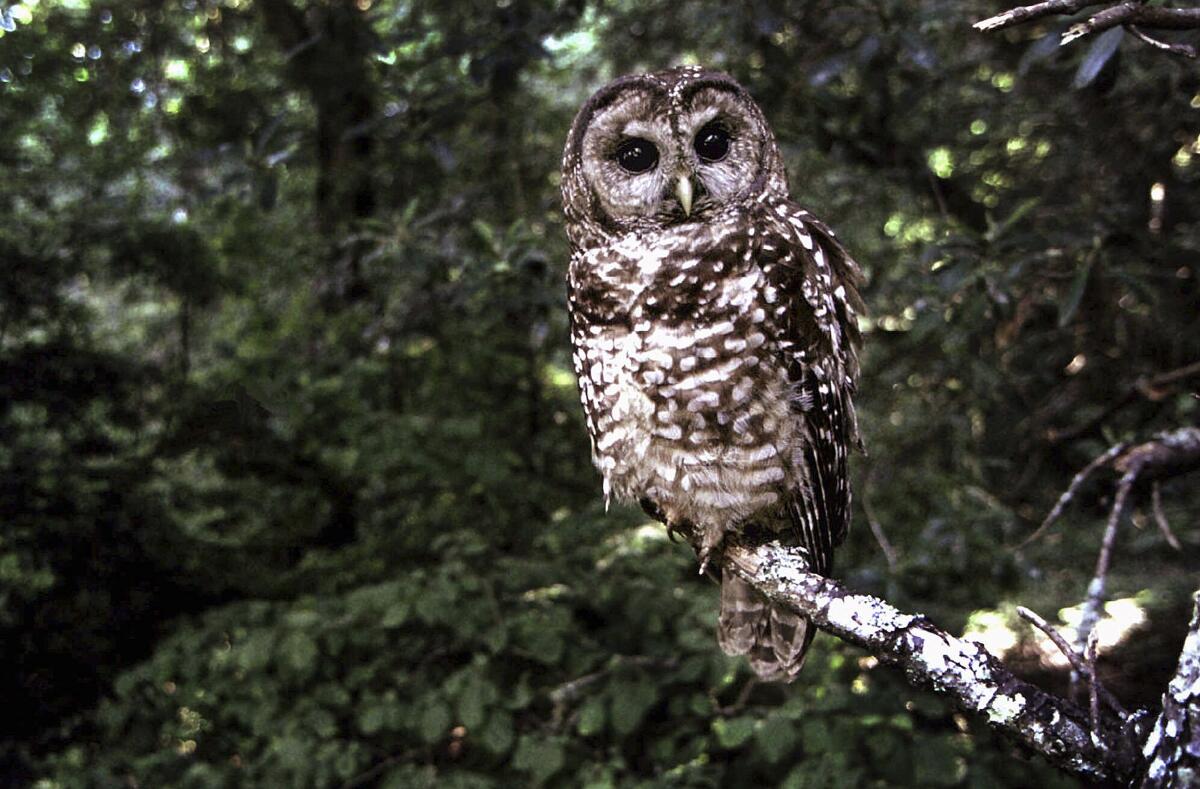Federal judge in California throws out Trump-era rollbacks on endangered species

- Share via
WASHINGTON — A federal judge on Tuesday threw out a host of actions by the Trump administration to roll back protections for endangered or threatened species, a year after the Biden administration said it was moving to strengthen species protections weakened under former President Trump.
U.S. District Judge Jon Tigar in Northern California eliminated the Trump-era rules even as two wildlife agencies under President Biden are reviewing or rescinding Trump-era regulations. The decision restores some protections under the Endangered Species Act while the reviews are completed.
Environmental groups hailed the decision, which they said sped up needed protections and critical habitat designations for threatened species, including salmon in California and the Pacific Northwest.
Tigar’s ruling “spoke for species desperately in need of comprehensive federal protections without compromise,” said Kristen Boyles, an attorney for the environmental group Earthjustice. “Threatened and endangered species do not have the luxury of waiting under rules that do not protect them.”
The ruling comes as two federal agencies — the Fish and Wildlife Service and the National Marine Fisheries Service — review five Endangered Species Act regulations finalized by the Trump administration, including critical habitat designations and rules requiring federal agencies to consult with other agencies before taking action on threatened or endangered species.
- Share via
Chinook salmon are one of California’s most iconic species, but dams and droughts are pushing the winter-run fish to the brink. Now, a rescue plan is taking shape — and a Native tribe has offered an unusual approach.
Fish and Wildlife also said it will reinstate the so-called blanket rule, which mandates additional protections for species that are newly classified as threatened. Those protections were removed under Trump.
Critical habitat designations for threatened or endangered species can result in limits on energy development such as mining or oil drilling that could disturb a vulnerable species. The consultation rule, along with a rule on the scope of proposed federal actions, helps determine how far the government may go to protect imperiled species.
Under Trump, officials rolled back protections for the northern spotted owl, gray wolves and other species, actions that Biden has vowed to review. The Biden administration previously moved to reverse Trump’s decision to weaken enforcement of the century-old Migratory Bird Treaty Act. The decision made it harder to prosecute bird deaths caused by the energy industry.
It was among more than 100 business-friendly actions on the environment that Trump took and Biden wants to reconsider, revise or scrap.
A spokesman for the Interior Department, which oversees the Fish and Wildlife Service, said the agency is reviewing the decision.
Fish and Wildlife and National Marine Fisheries Service announced in June 2021 that they were were reviewing the Trump-era actions. The reviews could take months or years to complete, officials said.
Industry groups and Republicans in Congress have long viewed the Endangered Species Act as an impediment to economic development, and under Trump they successfully lobbied to weaken the law’s regulations. Environmental groups and Democratic-controlled states battled the moves in court, but many of those cases remained unresolved.
Ryan Shannon, a lawyer with the Center for Biological Diversity, another environmental group, said he was “incredibly relieved” that “terrible” Trump-era rules governing the Endangered Species Act were thrown out by the Oakland-based Tigar, who was appointed to the federal bench by former President Obama.
“I hope the Biden administration takes this opportunity to strengthen this crucial law, rather than weaken it, in the face of the ongoing extinction crisis,’’ Shannon said.
More to Read
Sign up for Essential California
The most important California stories and recommendations in your inbox every morning.
You may occasionally receive promotional content from the Los Angeles Times.











